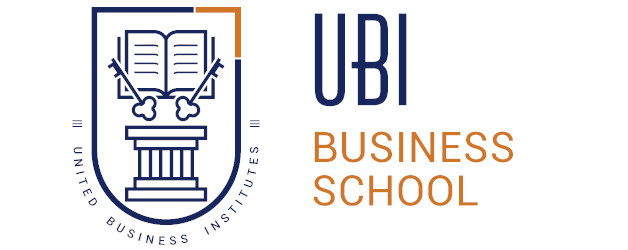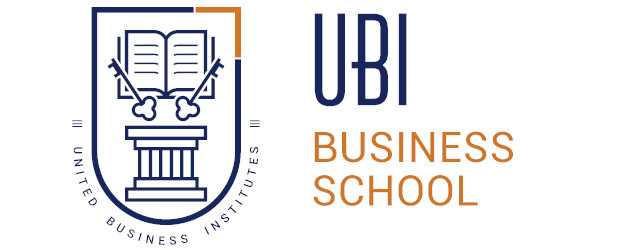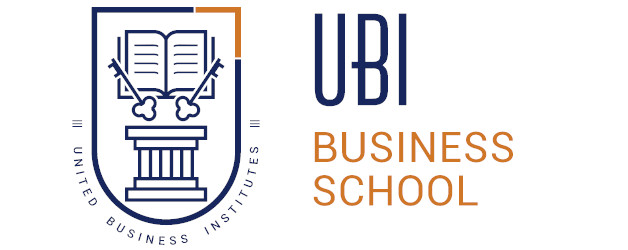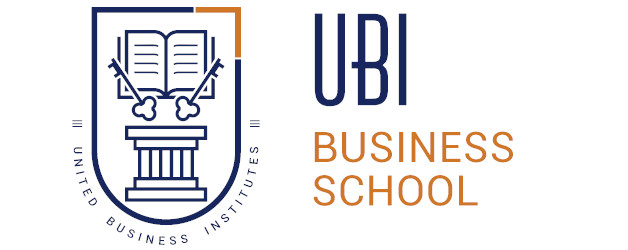AI and Machine Learning at UBI Business School: Future of Work
AI and ML: From Niche Tools to Mainstream Drivers
In recent years, artificial intelligence (AI) and machine learning (ML) have evolved from niche technological tools to pivotal engines of organisational transformation. No longer confined to the technology sector, AI and ML are now embedded in the very fabric of industries such as finance, healthcare, manufacturing, logistics, retail, and even the creative economy.
According to McKinsey’s State of AI 2025 survey, 78% of organisations now report using AI in at least one business function, an increase from 72% in early 2024. Furthermore, 71% of executives confirm that they are already deploying generative AI tools like ChatGPT or Claude in day-to-day operations, from marketing copy generation to product design and strategic planning (McKinsey, 2025). This widespread adoption signals not only a technological shift but also a cultural one: AI is no longer perceived as an experimental tool, but as a core capability for competitiveness.
The rise of Hybrid roles and Skills
The impact is especially visible in the job market. Careers that barely existed three years ago (AI prompt engineers, AI ethics officers, AI innovation managers, and AI product strategists) are now among the fastest-growing positions in 2025 (The Economic Times, 2025). Crucially, these roles highlight a broader evolution: the market is no longer seeking purely technical experts or purely strategic thinkers. Instead, it demands professionals with hybrid skill sets, capable of navigating both technical complexity and business imperatives. Gartner (2025) reinforces this point, noting that “the organisations that thrive will not be those with the largest algorithm libraries, but those with leaders who can translate AI into business value, responsibly and strategically.”
Industry transformation due to AI
The transformation is evident across sectors. In finance, AI is streamlining fraud detection and algorithmic trading, while in healthcare it supports precision medicine and diagnostic imaging. Manufacturing benefits from predictive maintenance and AI-driven robotics, and in retail, personalised recommendation engines are reshaping customer engagement. Even the creative industries, once thought immune to automation, are embracing AI for content creation, design, and campaign testing, with human oversight ensuring ethical and cultural relevance.
Humans and AI: Collaborators, not Competitors
Importantly, AI is not replacing human work but redefining it. As The Economic Times (2025) observes, AI is emerging as a collaborator rather than a competitor, amplifying human efficiency, creativity, and decision-making. This reflects a paradigm shift from “AI versus humans” to “AI with humans.” The winners in this transformation will not simply be the companies with advanced technology, but the ones cultivating leaders and professionals who can embed AI into strategy, ethics, and human vision.
This is precisely the mission of UBI’s portfolio in AI & Machine Learning. At UBI, we believe the future does not belong to those who simply “use AI”, but to those who can connect technology with strategy, ethics, and human insight. For that reason, we have created two complementary programmes designed not just to follow change, but to lead it.
Master in AI and Machine Learning (MSc)
The first is the Master in AI & Machine Learning. Delivered in Brussels or fully online, it is built on a HiFlex model recognised by EOCCS and QS, ensuring the same academic excellence wherever students are. The Master offers a comprehensive curriculum aligned with employer needs and complemented by Microsoft certifications and other professional credentials. Students work on real projects with European companies, building both practical experience and a professional network that extends across borders. With the flexibility to focus on ethics, strategy, data analytics, or entrepreneurship, participants gain the depth of expertise and leadership capacity required to drive organisational transformation. Graduates are prepared for roles such as AI project manager, business data analyst, digital transformation consultant, and innovation strategist, making them highly attractive to employers in Europe and beyond.
Professional Post-graduate Certificate in AI and Machine Learning
For professionals seeking a more focused, accelerated path, we also offers a Professional Postgraduate Certificate in AI & Machine Learning at UBI Business School. This five-month program is designed for executives and early- to mid-career professionals who want to upskill rapidly, acquiring targeted expertise without committing to a full Master’s degree. Delivered in the same HiFlex format, the Certificate concentrates on key themes such as AI strategy, data analytics, and ethical decision-making. It is particularly suited for professionals who need to integrate AI into their current roles quickly, ensuring immediate impact in their organisations while keeping flexibility in their career development.
Together, these two formats reflect UBI’s vision: to provide lifelong learning opportunities that respond to diverse professional needs. Whether through the in-depth journey of a Master’s or the fast-track expertise of a Professional Postgraduate Certificate, UBI equips its students with the knowledge, mindset, and network required to transform both their careers and their organisations.
In short, AI and ML are not simply technologies—they are reshaping the economy, redefining professions, and demanding a new generation of leaders who can connect innovation with strategy. UBI’s programmes offer exactly that: a bridge between technology and human vision. This is not just education. It is a transformative experience for those who want to shape the future of business through AI.
In recent years, artificial intelligence (AI) and machine learning (ML) have evolved from niche technological tools to pivotal engines of organisational transformation. No longer confined to the technology sector, AI and ML are now embedded in the very fabric of industries such as finance, healthcare, manufacturing, logistics, retail, and even the creative economy.
According to McKinsey’s State of AI 2025 survey, 78% of organisations now report using AI in at least one business function, an increase from 72% in early 2024. Furthermore, 71% of executives confirm that they are already deploying generative AI tools like ChatGPT or Claude in day-to-day operations, from marketing copy generation to product design and strategic planning (McKinsey, 2025). This widespread adoption signals not only a technological shift but also a cultural one: AI is no longer perceived as an experimental tool, but as a core capability for competitiveness.
The rise of Hybrid roles and Skills
The impact is especially visible in the job market. Careers that barely existed three years ago (AI prompt engineers, AI ethics officers, AI innovation managers, and AI product strategists) are now among the fastest-growing positions in 2025 (The Economic Times, 2025). Crucially, these roles highlight a broader evolution: the market is no longer seeking purely technical experts or purely strategic thinkers. Instead, it demands professionals with hybrid skill sets, capable of navigating both technical complexity and business imperatives. Gartner (2025) reinforces this point, noting that “the organisations that thrive will not be those with the largest algorithm libraries, but those with leaders who can translate AI into business value, responsibly and strategically.”
Industry transformation due to AI
The transformation is evident across sectors. In finance, AI is streamlining fraud detection and algorithmic trading, while in healthcare it supports precision medicine and diagnostic imaging. Manufacturing benefits from predictive maintenance and AI-driven robotics, and in retail, personalised recommendation engines are reshaping customer engagement. Even the creative industries, once thought immune to automation, are embracing AI for content creation, design, and campaign testing, with human oversight ensuring ethical and cultural relevance.
Humans and AI: Collaborators, not Competitors
Importantly, AI is not replacing human work but redefining it. As The Economic Times (2025) observes, AI is emerging as a collaborator rather than a competitor, amplifying human efficiency, creativity, and decision-making. This reflects a paradigm shift from “AI versus humans” to “AI with humans.” The winners in this transformation will not simply be the companies with advanced technology, but the ones cultivating leaders and professionals who can embed AI into strategy, ethics, and human vision.
AI and Machine Learning at UBI Business School – Programmes for Future Leaders
This is precisely the mission of UBI’s portfolio in AI & Machine Learning. At UBI, we believe the future does not belong to those who simply “use AI”, but to those who can connect technology with strategy, ethics, and human insight. For that reason, we have created two complementary programmes designed not just to follow change, but to lead it.
Master in AI and Machine Learning (MSc)
The first is the Master in AI & Machine Learning. Delivered in Brussels or fully online, it is built on a HiFlex model recognised by EOCCS and QS, ensuring the same academic excellence wherever students are. The Master offers a comprehensive curriculum aligned with employer needs and complemented by Microsoft certifications and other professional credentials. Students work on real projects with European companies, building both practical experience and a professional network that extends across borders. With the flexibility to focus on ethics, strategy, data analytics, or entrepreneurship, participants gain the depth of expertise and leadership capacity required to drive organisational transformation. Graduates are prepared for roles such as AI project manager, business data analyst, digital transformation consultant, and innovation strategist, making them highly attractive to employers in Europe and beyond.
Professional Post-graduate Certificate in AI and Machine Learning
For professionals seeking a more focused, accelerated path, we also offers a Professional Postgraduate Certificate in AI & Machine Learning at UBI Business School. This five-month program is designed for executives and early- to mid-career professionals who want to upskill rapidly, acquiring targeted expertise without committing to a full Master’s degree. Delivered in the same HiFlex format, the Certificate concentrates on key themes such as AI strategy, data analytics, and ethical decision-making. It is particularly suited for professionals who need to integrate AI into their current roles quickly, ensuring immediate impact in their organisations while keeping flexibility in their career development.
Together, these two formats reflect UBI’s vision: to provide lifelong learning opportunities that respond to diverse professional needs. Whether through the in-depth journey of a Master’s or the fast-track expertise of a Professional Postgraduate Certificate, UBI equips its students with the knowledge, mindset, and network required to transform both their careers and their organisations.
In short, AI and ML are not simply technologies—they are reshaping the economy, redefining professions, and demanding a new generation of leaders who can connect innovation with strategy. UBI’s programmes offer exactly that: a bridge between technology and human vision. This is not just education. It is a transformative experience for those who want to shape the future of business through AI.










